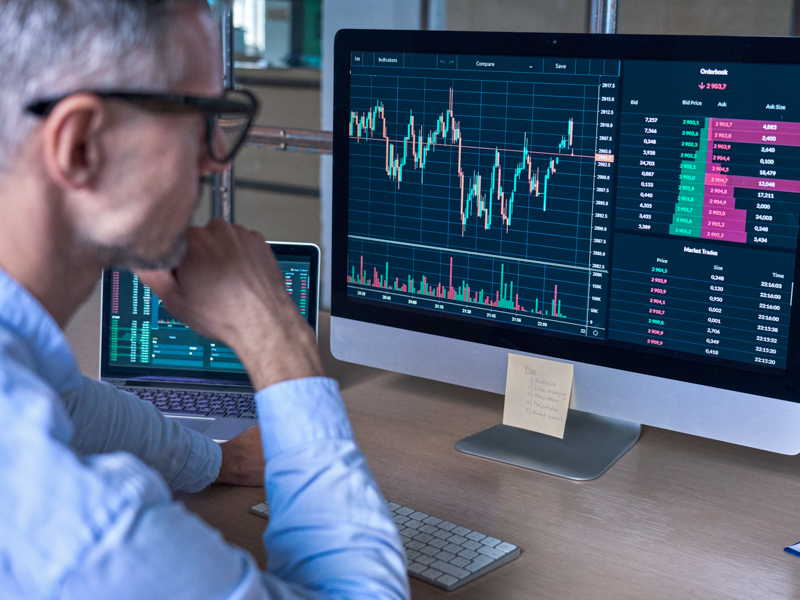The Future of Cryptocurrency
Published 02/17/2022
 This blog was originally published by VGS here.
This blog was originally published by VGS here.
Written by Kenneth Geers, PhD, Information Security Analyst at VGS.
In 2010, Laszlo Hanyecz paid 10,000 bitcoins for two pizzas. Today, with the price of bitcoin over over $40k, those same coins are worth nearly half a billion dollars. How could a simple string of digital bits be so valuable? Good question! In fact, the answer is not merely economic, but also social and political. Money is a human construct, and gains its legitimacy – and value – from consensus and convention.
Before we had “money”, humans would barter, or trade, items of intrinsic value, such as shells and salt, which demonstrated a “proof of work” – often based on discovery, extraction, or transport. Some items were clearly more valuable than others; for example, gold possesses a singular array of elemental traits: rarity, beauty, and strength, while simultaneously not being poisonous, radioactive, or corrosive.
Over time, governments saw value (and profit) in standardizing the size, shape, and weight of what we now call money. China produced the world’s first metal coins over 3,000 years ago, and the first paper bills over 1,000 years ago. Ultimately, governments also have the unique authority to declare something “legal tender”, which means that courts of law are required to recognize it as a satisfactory payment for a debt.
Governments have continuously experimented with minting coins and printing bills, and they found that good money is similar in nature to the most valuable natural resources: scarce, durable, portable, and verifiable. Thus, some of the world’s oldest coins are still in existence today.
Money, Defined
Today, economists argue that there are three essential characteristics of good money.
- Medium of Exchange: An intermediary token that can be traded for goods and services.
- Unit of Account: A stable measure of prices, profits, and performance.
- Store of Value: A durable asset with saved purchasing power.
As we look at the future of cryptocurrency, it is important to consider whether it can satisfy all three of these requirements.
War and Peace
Today’s international economic (and political) system was forged in the ashes of World War II. In fact, in times of crisis, when human civilization seems to be most fragile, that is also when it is easiest to understand the value of natural resources. As war broke out in 1939, England, France, and Poland secretly shipped millions of pounds of gold to North America and Africa in spectacular missions such as Operation Fish.
When the war was over, and the Allied Powers were desperate for economic stability, they created the “Bretton Woods” system, in which many countries pegged their exchange rates to the US dollar, and in turn, the dollar was pegged to the price of gold.
The United States, as the post-war nation with the most political clout, military power, and largest gold reserves, was in the enviable position of seeing the US dollar replace the British pound as the world’s “reserve currency”. A reserve currency refers to a reliable foreign currency that nations hold in large quantities, in order to offset an insufficient supply, or potential collapse, of their own currencies.
The End of Convertibility
These post-war dynamics ushered in a period of economic stability that benefited much of the world, especially in market-based democracies. However, some nations were unhappy with the numerous advantages which this system appeared to confer upon the US, including the ability to borrow at lower costs, monetize debt, and run balance-of-payment deficits.
Over time, however, it became clear that the US was unlikely to maintain this privilege indefinitely. Political and military commitments, stemming from the New Deal to the Vietnam War, overstretched US capacity.
In order to combat rising inflation, in 1971, Richard Nixon undertook a series of dramatic economic steps, including the unilateral cancellation of the direct international convertibility of the US Dollar to gold. Thereafter, the Bretton Woods system was replaced by a new regime, based on freely floating fiat currencies.
What the heck is fiat money? In Latin, the word “fiat” means “let it be done”. Thus, fiat currency is not backed by a commodity like gold, but simply stands on a government declaration, a decree that it qualifies as legal tender. Its value depends on the faith that humans – individually and collectively – place in the government that prints it.
Strategic change did not happen overnight, but there has been a gradual shift in reserve currency investment. In 1970, the US Dollar’s share of global currency reserves was nearly 85%. In 2021, the number had dropped to 59%. The Euro did not even exist before the turn of the century; however, it now commands over 21% of global currency reserves.
The Cryptocurrency Revolution
Cryptocurrency did not appear out of thin air. Most of today’s transactions – whether in dollar, ruble, yuan, or other – are digital. At the coffee shop, we usually do not pay in minted coins or paper dollars anymore. We simply move bits around in databases: on a digital ledger, somewhere in the cloud, my bank balance drops $5, and the merchant’s goes up $5.
The road to bitcoin was paved with innumerable programmable transactions. The 1970s gave us TCP/IP, the 1980s Ethernet, the 1990s HTTP and SSL/TLS. In 2008, when bitcoin and blockchain came along, they stood on the shoulders of giants: hash functions for integrity, digital signatures for authentication, append-only time-stamps for immutability, and much more.
Revolutionary ideas like double-entry bookkeeping (i.e. notations on two ledgers, credit and debit) helped to bring Europe out of the Dark Ages. In 2008, when Satoshi Nakamoto published his/her/their paper, “Bitcoin: A P2P Electronic Cash System”, the goal was to achieve the same feat, but on a global scale. Nakamoto created a technology that could verifiably move value (of any kind) across a decentralized network, peer-to-peer, with no trusted intermediary.
Cryptocurrency is a digital asset that sits on a blockchain, which is an online, distributed, auditable database of records (blocks) that are cemented together with advanced mathematics and cryptography. The blockchain communication protocol is governed by consensus, with all parties agreeing to the creation, ownership, and transfer of coins. The result is a novel financial network that decreases the “cost of trust”, and even claims to solve challenging philosophical puzzles like the Byzantine’s Generals problem.
Benefits & Risks
The future of cryptocurrency is intimately connected to its considerable social and political impact. Cryptocurrency has the potential to benefit everyone – from the individual citizen to the nation-state. For both, there is increased opportunity for financial inclusion, ownership, and power, at lower cost, increased confidentiality, and better access to a global marketplace. Even seasoned investors are astonished at the potential for return-on-investment.
Further, at the political level, investing in blockchain offers an increased capacity for electronic government and digital society, with the potential to strengthen democracy, human rights, the rule of law, and anti-corruption initiatives. Witness Estonia’s E-residency system, which offers numerous digital benefits that most authoritarian governments would never dream of giving their citizens.
However, it is precisely the incredible potential for economic and political transformation that may slow the evolution and adoption of cryptocurrency. In any system, players who start to lose out on previous benefits will consider defensive countermeasures. China is digitizing its own currency, the yuan, but is cracking down on decentralized cryptocurrencies like bitcoin. Russia is trying to chip away at its dependency on the US Dollar, but is equally nervous about cryptocurrencies; thus, Moscow is buying record amounts of gold. In the West, there is growing concern over cryptocurrency’s large carbon footprint. Remember that governments control your access to the Internet, so they also control your access to cryptocurrency. Here, consider the extent to which cryptocurrency may become associated with criminal, terrorist, or rogue nation use.
At the individual level, the potential risks of owning cryptocurrency include a steep learning curve, and rapid technological evolution. Standards, regulations, insurance, and norms are nascent, so there is a real risk that you will lose all of your money. Cryptocurrency infrastructure has been vulnerable, with numerous hacked exchanges. And cybersecurity concerns are also cryptocurrency concerns, from lost hardware and passwords to hacking, malware, phishing, extortion, and cryptojacking.
Cryptocurrency Security
If you choose to invest in cryptocurrency, you should consider it a high-risk investment, and plan accordingly. Your private keys are your digital identity in the cryptocurrency market, and they allow you to trade cryptocurrency online. If your private key is stolen, the thief can take your money or commit fraud in your name. Cryptocurrency wallets store your private keys. A cold (hardware) wallet is best, as they do not have a direct connection to the Internet. If you use a paper wallet, you should laminate it for long-term storage. For added security, you may want to diversify with multiple wallets. Do not forget to print and save your backup words in a secure location.
To protect your cryptocurrency investments, make a plan for physical security, cybersecurity, and human security. For your devices, install anti-virus, keep current with patching, and turn on your firewall. On the network, beware of public Wi-Fi, and use a VPN if possible. For yourself, use a good password policy, enable multi-factor authentication (MFA), and do not fall for social engineering, phishing, adware, etc.
Information security is a deep subject. For example, in the world of public key infrastructure (PKI), it is important to create a key pair with the help of a random number. Some wallets have been hacked due to a failure of sound random number generation, which underlines the challenging nature of security in the cryptocurrency space.
The Future of Cryptocurrency
In the near term, the prospects for cryptocurrency are limited, simply because it is so new, and there is still much work to do on technical, security, policy, and legal fronts. Consider only the aspect of time: Visa can process over 50k transactions per second, whereas bitcoin can process less than 10. Therefore, it is highly unlikely that cryptocurrency will challenge the US Dollar’s status as the world’s reserve currency in the foreseeable future. El Salvdor’s recent experiment in making bitcoin an official national currency alongside the U.S. dollar has not gone well.
Over the horizon, however, the power of cryptocurrency and blockchain retain the potential to transform not only world finance, but world politics. The FinTech space is so hot because coders, Internet users, digital revolutionaries, and entrepreneurs continually find space to improve the way that humans do things. In the end, money is a societal norm, and once the public gets comfortable with cryptocurrency’s usability, functionality, and security, adoption will follow. But that may take some time, and it may require significant patience on the part of the average investor.
In the meantime, it is wise to presume that cryptocurrency is a high-risk investment. You should even think of it as a binary investment: while a cryptocurrency such as bitcoin may become the most valuable asset in human history, its value may also – for some reason that may be hard to predict, given the large number of variables involved – drop to zero. At the moment, it is impossible to know. What we do know is that billionaires like Elon Musk can afford to lose all of their bitcoins, because they represent a small fraction of their wealth. Make sure the same rule applies to you.
DISCLAIMER
I am not a financial expert, but an information security researcher. Therefore, this blog does not constitute investment advice, but merely the author’s opinion, based on the sources quoted above.
Unlock Cloud Security Insights
Subscribe to our newsletter for the latest expert trends and updates
Related Articles:
Empowering BFSI with Purpose-Built Cloud Solutions
Published: 10/01/2024
Cloud Threats Deploying Crypto CDN
Published: 06/03/2024
Unlocking Trust in the Digital Age: The Power of Blockchain Technologies
Published: 05/28/2024






